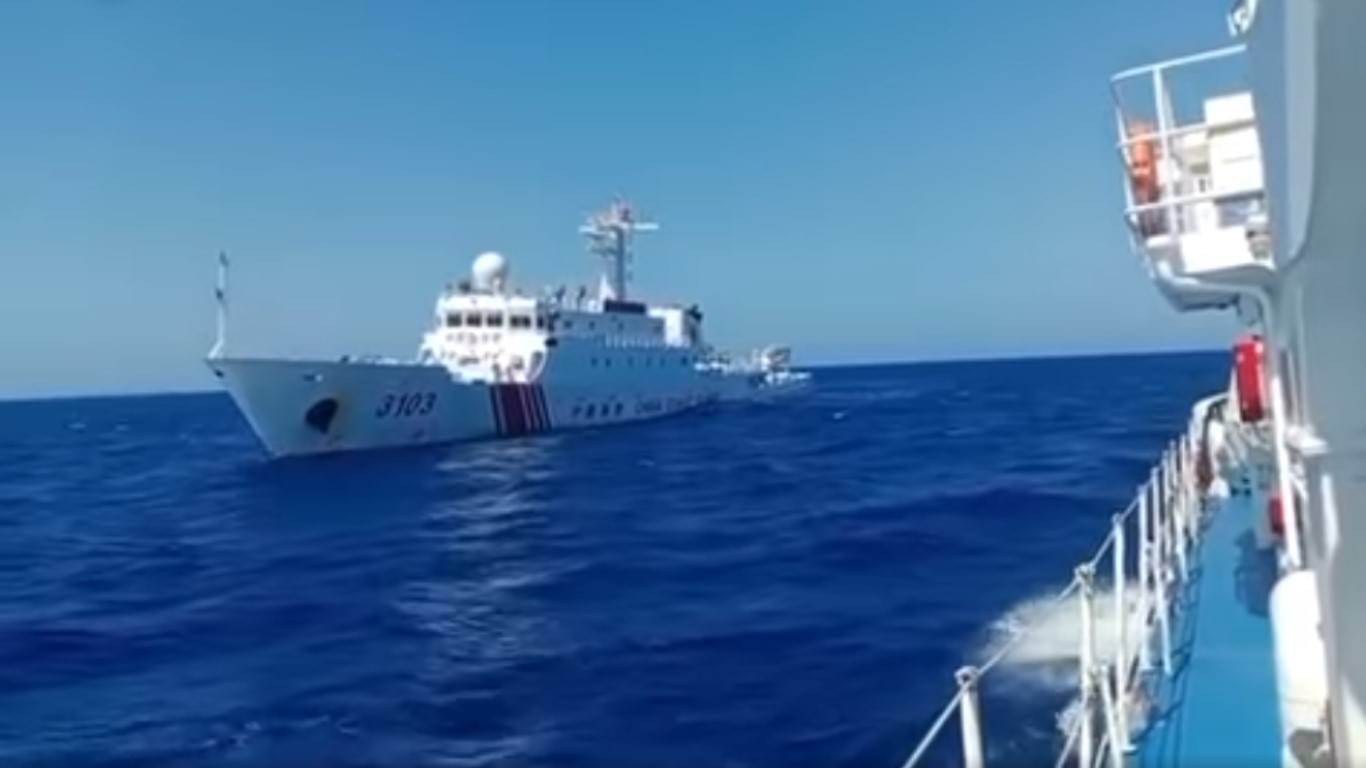China deploys deafening sonic device vs PCG ship

China on Saturday used for the first time a long-range acoustic device capable of “producing high decibel levels that can be painful and damaging to hearing” to harass the Philippine Coast Guard (PCG) in the West Philippine Sea.
China Coast Guard (CCG) 3103 used the device apparently to deter the PCG’s BRP Cabra from getting closer to the Chinese ship, PCG spokesperson for the West Philippine Sea Commodore Jay Tarriela said late Saturday.
The Chinese coast guard vessel appeared to be escorted by the so-called “monster ship,” he said, referring to the 12,000-ton CCG 5901, the world’s biggest coast guard vessel.
The massive ship was first monitored off Capones Island in the waters of Zambales province on Jan. 4, and has stayed within that area since. Smaller Chinese vessels have also tried to move closer to the coast of the Philippines since then.
Tarriela said the BRP Cabra conducted hourly radio challenges “to assert that the Chinese presence violates the Philippine Maritime Zones Act, the United Nations Convention on the Law of the Sea, and the 2016 Arbitral Award.”
“Despite the harassment and the intimidating presence of the Chinese monster ship, BRP Cabra remains committed to its mission,” Tarriela added.
As of late Saturday, CCG 3103 has been pushed back to a position between 167 to 176 kilometers (90 and 95 nautical miles) off the coast of Zambales, Tarriela added.
On Friday, the Chinese coast guard and People’s Liberation Army Navy harassed a Bureau of Fisheries and Aquatic Resources (BFAR) research mission to Sandy Cays near Pag-asa (Thitu) Island in the West Philippine Sea.
BFAR vessels BRP Datu Pagbuaya and BRP Datu Bankaw were en route on the morning of Jan. 24 for a marine scientific survey and sampling at Sandy Cays 2 and 3.
“During the mission, the BFAR vessels encountered aggressive maneuvers from three Chinese coast guard vessels 4106, 5103 and 4202,” Tarriela said.
According to the PCG, the CCG deployed four speedboats against the two BFAR rigid hull inflatable boats (RHIBs).
“Compounding the situation, a People’s Liberation Army Navy (PLA Navy) helicopter, identified by tail No. 24, hovered at an unsafe altitude above the BFAR RHIBs, creating hazardous conditions due to the propeller wash,” Tarriela noted.
He said there was a propeller wash from the helicopter at a very low altitude, causing a very high possibility that the rubber boats would capsize.
CCG vessels have been keeping a constant presence in the West Philippine Sea—part of the South China Sea being claimed by the Philippines—to enforce Beijing’s excessive maritime and territorial claims.
An international arbitration tribunal ruled in 2016 that China’s claims have no basis in international law, a decision Beijing has refused to recognize.
Trilateral cooperation
Meanwhile the Philippines, France and Vietnam should explore the feasibility of a trilateral maritime cooperation to boost regional security.
Rear Adm. Roy Vincent Trinidad, Navy spokesperson for the West Philippine Sea, raised that prospect of a “trilateral cooperative agreement” (TCA) between the Philippines, France and Vietnam during a recent forum on maritime security partnerships in Makati City.
This potential agreement, he said, would be similar to the TCA between the Philippines, Indonesia and Malaysia forged in 2016 to enhance law enforcement in the Sulu Sea and Sulawesi Sea, a hot spot for kidnapping, piracy and other transnational crimes.
‘Commitment’
France is among the countries in talks with the Philippines for a Status of Visiting Forces Agreement, which serves as a foundation for further enhancing interoperability.
Manila already has similar agreements with Washington and Canberra, while a deal with Tokyo has yet to be ratified by their parliament.
French aircraft carrier Charles de Gaulle, which is currently operating in the region to demonstrate Paris’ commitment to freedom of navigation, will visit the Philippines next month for its first port call that “underscores France’s commitment to strengthening its involvement alongside the Philippines,” French Ambassador to Manila Marie Fontanel said in the same forum on Jan 23.
The Philippines and Vietnam are expected to sign a defense cooperation agreement this year, following a range of maritime-related engagements in 2024, including joint coast guard drills.
“While Vietnam and the Philippines have achieved much together, the complexity of maritime security challenges demands broader collaboration,” Vietnamese Ambassador to the Philippines Lai Thai Binh said in the same event.





















